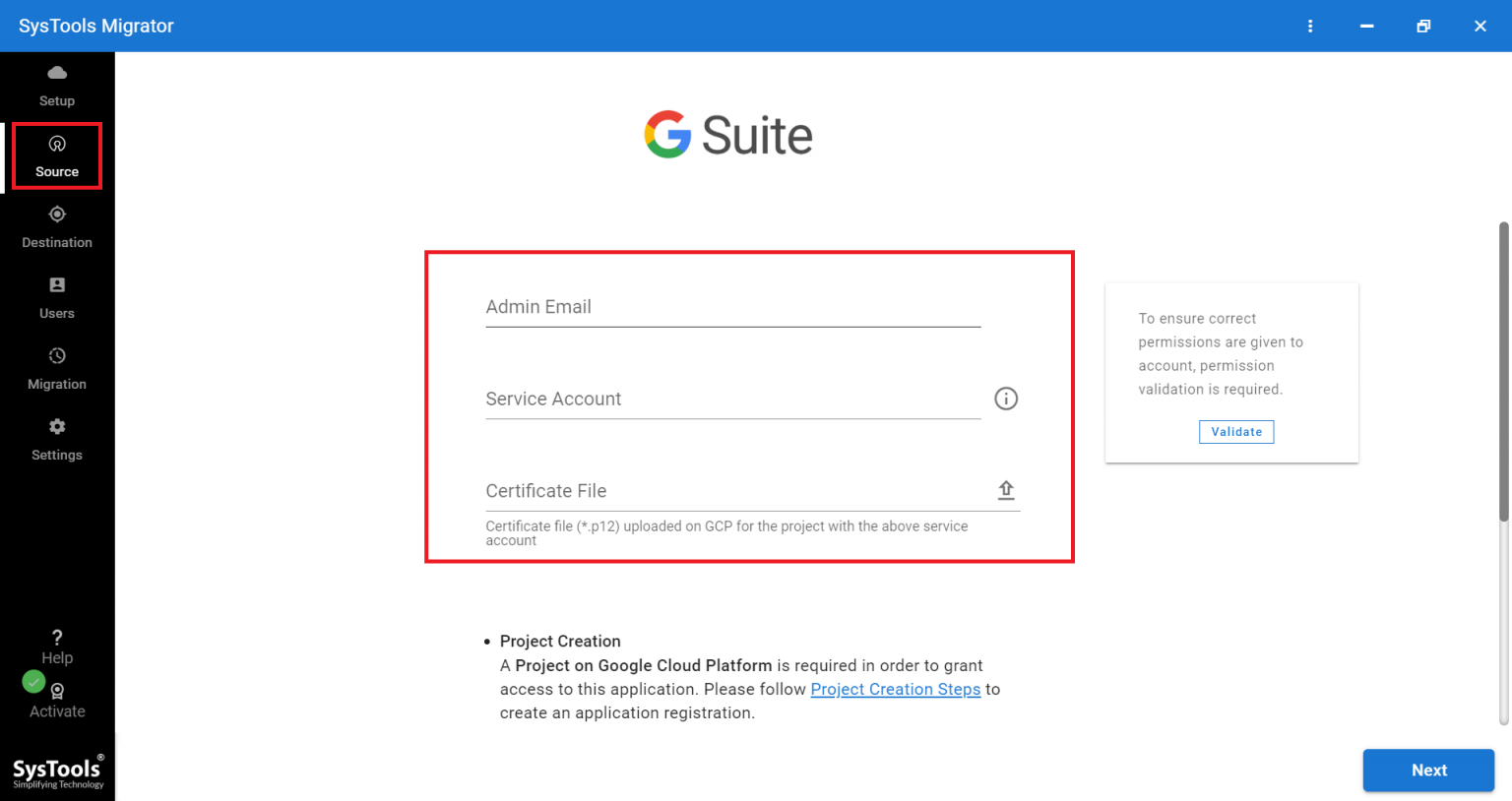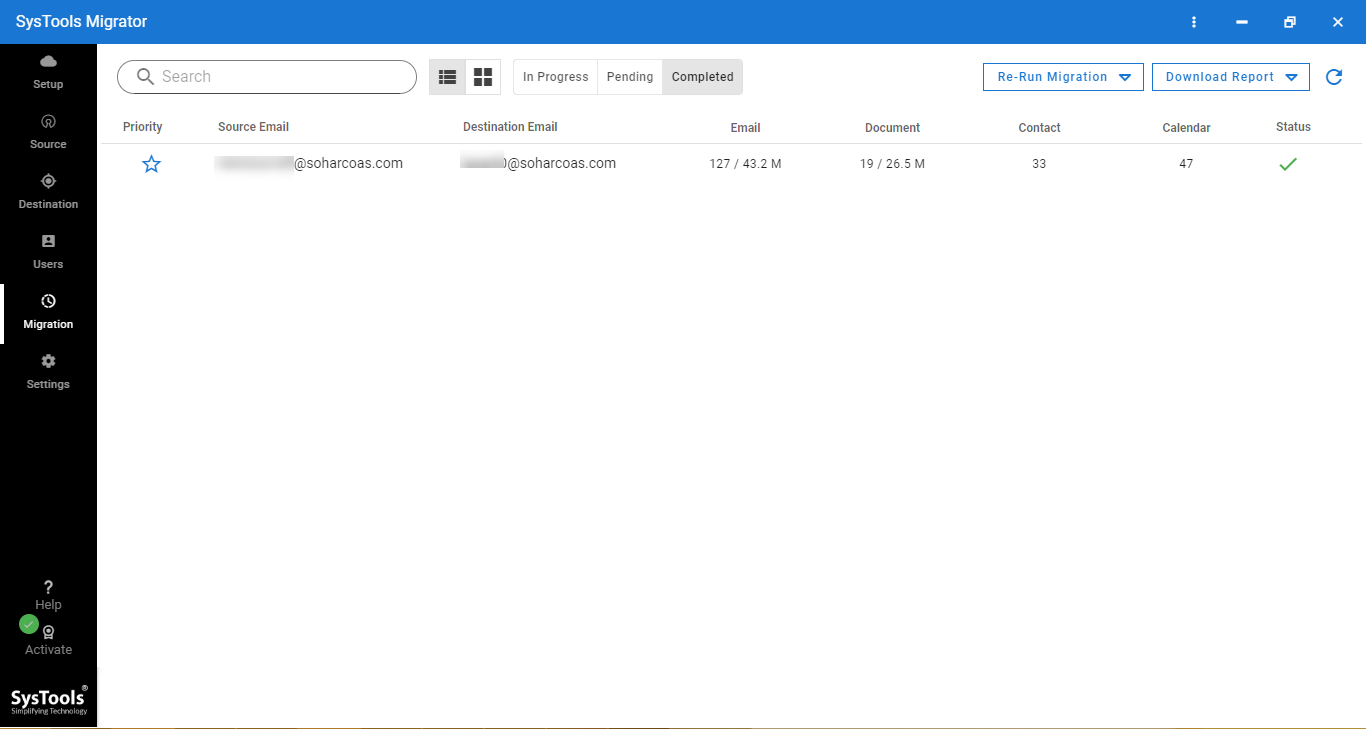How to Migrate G Suite to G Suite Using Direct Method? Step By Step
Looking for a way for a secure G Suite to G Suite migration? If yes, then we have a solution to your problem.
There are many G Suite Admins out there, who are facing trouble while executing such migration. Every G Suite Admin knows about Google Data Migration Service (DMS), but still, they face some troubles while executing it.
So, to save you from trouble, we will explain the step-by-step process to migrate G Suite to G Suite using DMS and an automated tool. The automated tool is the alternative to DMS that provides better features and a safe migration.
Table of Content
Why G Suite to G Suite Migration Is Required?
Before going ahead with the migration process, you better understand whether it is best for you or not. The following are the main reasons. Why many organizations do a G Suite migration:
- To migrate G Suite data for an employee leaving.
- For changing the organizational domain name.
- To move G Suite email to another account.
- For sharing the email with another G Suite account from different domains.
- Collaborating with another organization.
But one thing that never changes when migrating from G Suite to G Suite is skepticism about the migration process. Many organizations are afraid of losing or leaking their data during a migration. Or they have doubts about proper migration. So, to help you with this, we have come up with two solutions: one by using a migration service and the other by using automated tools. Let us understand them in detail.
5 Quick Steps to Migrate G Suite to G Suite Safely
- Step 1. Download & Launch the Software.
- Step 2. Select Source & Destination as G Suite.
- Step 3. Enable Mail Category & Apply Date Filter.
- Step 4. Validate Source & Destination Credentials.
- Step 5. Add & Select Users & Click on Start Button.
How to Perform G Suite to G Suite Migration Using DMS Manually?
After realizing the troubles that G Suite users were facing, Google provided its own migration platform for its users. This platform is known as Data Migration Service (DMS). Using this migration tool users can transfer their G Suite (emails only) to another G Suite account.
However, there are some flaws in this method, and it’s far from being the perfect method. If your requirement is to migrate a few user accounts then, this method is OK for anyone. But, if the important G Suite business accounts need to be migrated then it’s better to prefer a professional approach.
Steps to Migrate G Suite Account Data Using DMS to G Suite
Step 1. Go to Google Admin Console and Go to the “Data Migration” option

Step 2. Select the migration source as “G Suite” from drop-down
Step 3. Next, select “Email” for migration.
Step 4. Now, choose the connection protocol as “Recommended” and in Role Account enter source G Suite Admin credentials and Connect.

Step 5. Choose the migration start date (migrate data between that date range).

Step 6. Now, Choose to Add User option & select the Multiple user options

Step 7. Create a CSV file with the destination id, source id, and source password without any header.

Step 8. After that upload the file by using the Attach File option.
Step 9. Now, click on Upload and Start Migration to migrate G Suite to G Suite.
Step 10. You can see the progress report in the Admin Console.

Limitations of Data Migration Service in Migrating G Suite to G Suite
- Doesn’t allow to migrate of emails, contacts, and calendars at the same time
- Require Exchange Server to migrate contacts and calendars
- No support to migrate Google Drive data between G Suite accounts.
- Migration of user account data can take hours or days (slow process)
- Migration of a G Suite account to a different domain is quite tricky
- Need to manually enter each user id and password for G Suite to G Suite migration.
- No priority option to migrate certain users before others
- No Error handling functionality in case of power/internet connection loss
- Only one way to map user accounts while migrating data.
Related: How to Export G Suite Calendar to Outlook – Effortlessly
Advantages of Data Migration Service
The only advantage of the Data Migration service is that it’s free.
Use the Secure & Reliable Tool for G Suite to G Suite Migration
The professional solution for a fast and easy process with the G Suite Migration Tool. This software helps you to migrate G Suite data to G Suite accounts instantly without losing any data. Despite all the limitations that users may face using DMS, this tool overcomes them.
Users can migrate emails, contacts, calendars, and documents all at the same time. Also, this tool provides multiple filter options for ease of migration.
Try the free demo version of the tool & get 2 free licenses for complete migration.
Important Note: If you are operating a Mac operating system, you can quickly transfer email from G Suite account to another G Suite account using IMAP Email Migration Tool for Mac. This application is great for batch account migration in one go. With a free demo version, it allows you to transfer 100 emails absolutely free of charge from the source to the destination account.
Software Steps to Migrate G Suite to G Suite Account Safely
Step 1. First, Download and Install the suggested application on the Windows operating system.
Step 2. Next, select the Source and Destination Platform as “G Suite” from the List.

Step 3. Select the Category of data to migrate from the Workload section and apply the Date-range filter for selective data migration.

Step 4. Now, enter the Source Admin Email, and Service Account and Validate both.

Step 5. Now, provide the exact details for the destination also. Enter Admin Email and Service Account. Now, Validate both.

Step 6. Select any option from the Users tab to perform Source and Destination user ID mapping.

Step 7. Apply Priority to migrate selected users before others and click on the Validate button. After validation, click on the Start Migration button to begin G Suite to G Suite migration.

Step 8. Use the In-Progress, Pending, and Completed tabs to keep an eye on the progress of migration in real time.

Step 9. After completion of migration, save the Report to the computer for future reference.

Why Choose Automated Tool for Migration?
- Easily migrate multiple G Suite user accounts.
- Transfer emails, contacts, calendars, and documents simultaneously on Windows 11, 10 OS.
- Migration is possible only using Admin credentials (high security).
- Date Filter for migration of specific date range.
- Multiple sources and destination Id user mapping options.
- Priority filter to migrate specific user’s accounts before others.
- Generates a complete detailed migration report.
- Error handling functionality for protection against power loss or internet connection loss.
- Delta migration option to transfer only new or updated data between both accounts.
Also Read: How to Perform G Suite to Office 365 Migration?
Wrapping Up
In this post, we have explained two ways to migrate G Suite account data to another G Suite account. The first way is to use Google DMS which is suitable for the migration of a few user accounts. Whereas, an automated tool is perfect for G Suite to G Suite migration, perfect for getting the job done with ease. So, before starting the migration choose the solution that suits you best.


